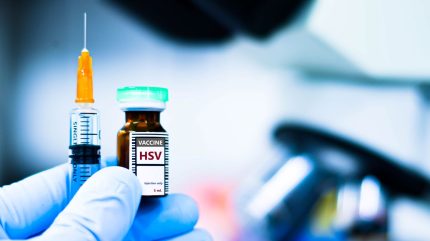
GSK has announced that Part II of the Phase I/II TH HSV REC-003 trial of its therapeutic herpes simplex virus (HSV) vaccine candidate, GSK3943104, did not meet its primary efficacy endpoint.
The results were evidenced in an analysis of primary objective data from the Phase II part of the trial.

Discover B2B Marketing That Performs
Combine business intelligence and editorial excellence to reach engaged professionals across 36 leading media platforms.
The vaccine candidate, GSK3943104, was aimed at providing a new therapeutic option for HSV, but following the trial’s results, the company announced plans to not advance it to Phase III studies.
Despite this setback, no safety concerns linked to the vaccine were observed during the trial.
The TH HSV REC-003 study will not conclude immediately, as GSK is committed to conducting routine safety monitoring.
The company also aims to generate follow-up data that may yield valuable insights into the treatment and management of recurrent genital herpes.

US Tariffs are shifting - will you react or anticipate?
Don’t let policy changes catch you off guard. Stay proactive with real-time data and expert analysis.
By GlobalDataIn light of the trial’s outcome, GSK is actively engaging with investigators to ensure that all participants are promptly and properly informed.
In a press statement, GSK said: “Given the unmet medical need and burden associated with genital herpes, innovation in this area is still needed. GSK intends to evaluate the totality of all these data and other studies to progress future research and development of its HSV programme.”
Recently, the company reported results from two Phase III clinical trials of depemokimab in patients with severe asthma characterised by elevated blood eosinophil counts, a marker of type 2 inflammation.
The SWIFT-1 and SWIFT-2 trials are identical double-blind, placebo-controlled studies assessing the efficacy and safety of depemokimab as an adjunctive therapy versus placebo.
Both trials met their primary endpoints, demonstrating a statistically significant decline in the annualised rate of clinically significant asthma exacerbations over 52 weeks compared with a placebo.





